Social Watch news
Published on Thu, 2011-12-22 12:25
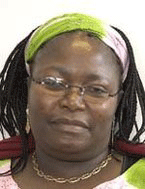
Emily Sikazwe.
(Photo: DanChurchAid)
|
Religious leaders and politicians have to combine efforts against gender based violence and sexual assaults on children in Zambia, urged Emily Sikazwe, executive director of Women for Change, focal point of Social Watch in that African country.
|
Published on Tue, 2011-12-20 07:40
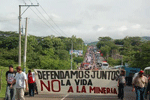
Demonstration against mining
in El Salvador.
(Photo: Upside Down World)
|
Hundreds of civil society organizations from all over the world are calling the World Bank and the International Centre for Settlement of Investment Disputes (ICSID), associate to the institution, to dismiss the demand of compensation initiated by Canadian company Pacific Rim against the Government of El Salvador, which forbade a cyanide-leach gold mining project presented by the firm.
|
Published on Mon, 2011-12-19 14:20
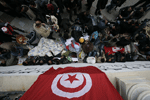
Photo: Government in the Lab
|
The news has been filled with contention over Egypt’s November elections, but far less attention is being paid to the voting in Tunisia—also recently liberated from the rule of a dictator. In her analysis for Owni.eu and Government in the Lab magazine, Mary Elizabeth King recounted the democratization process and remarked the role of the Tunisian League for Human Rights, focal point of Social Watch in that country.
|
Published on Fri, 2011-12-16 12:12

Occupy Wall Street marks a new
trend in US society. (Photo:
David Shankbone/Good Magazine
/Flickr/Creative Commons)
|
A growing number of US citizens raise their voices “demanding a new social contract” as the multiple world crises are increasing “poverty and income inequality at historic levels.” This unprecedented movement nurtures hope in a change of policies and behaviors “geared toward the well-being of Americans and the rest of the human race,” according to the US national contribution to the Social Watch Report 2012, launched last week.
|
Published on Fri, 2011-12-16 12:10
“The European Union (EU) can assist in the process of democratization of Arab countries, but on our terms,” said Kinda Mohamadieh, program director of the Arab NGO Network for Development (ANND, focal point of Social Watch) at the conference “Democracy & Development”, held in Warsaw.
|
Published on Fri, 2011-12-16 12:08
A new round of negotiations aimed at an agreement by 2015 was launched on Saturday 10 at a stormy last session of the Durban climate conference, reports Martin Khor, executive director of South Centre, in his most recent column for The Star, one of the leading Malaysian newspapers.
Khor’s column reads as follows:
|
Published on Thu, 2011-12-15 08:27
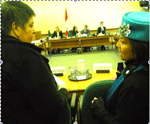
Jeannette Corbiere Lavel and
Sharon Donna McIvor.
(Photo: FAFIA)
|
The UN Committee on the Elimination of Discrimination against Women decided to conduct an inquiry into the murders and disappearances of Aboriginal women and girls across Canada. The decision was announced this week by Jeannette Corbiere Lavell, President of the Native Women’s Association of Canada (NWAC), and Sharon McIvor, of the Canadian Feminist Alliance for International Action (FAFIA, focal point of Social Watch in that North American country).
|
Published on Mon, 2011-12-12 10:50
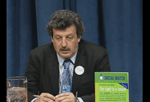
Watch and listen to Roberto Bissio's
press conference at UN headquarters
in this webcast.
|
Countries like Brazil, and also China and India, in “which stimulus packages were basically directed to support the poor in different ways,” have actually recovered faster from the crisis than industrialized countries, which bailed out banks and rich people, said at UN headquarters in New York Roberto Bissio, Coordinator of Social Watch, when he launched the most recent edition of the annual report of this international network of civil society organizations.
|
Published on Fri, 2011-12-09 13:28
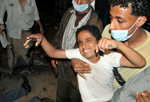
Repression in Yemen: gross
human rights violations in an
unsustainable country.
(Photo: HRITC)
|
Rights are the basis of sustainable development, said Roberto Bissio, coordinator of Social Watch, when asked to summarize the conclusions of the new report of this international network of civil society organizations, launched at the United Nations headquarters in New York on Friday, on the eve of the Human Rights Day. Over sixty national reports by independent citizen groups form the core of the Social Watch Report 2012, which this year focuses on the rights of future generations.
|
Published on Thu, 2011-12-08 08:31

(Photo: Gabby DC/Flickr/CC)
|
Future generations can’t control the present. They need international institutions that defend their rights. The United Nations Conference on Sustainable Development (Rio+20) to be held next year in Rio de Janeiro gives the opportunity to create them, agreed representatives of civil society from all over the world in their contributions to the Social Watch Report 2012, that will be launched in New York on Friday 9.
|
SUSCRIBE TO OUR NEWSLETTER
Submit

|










